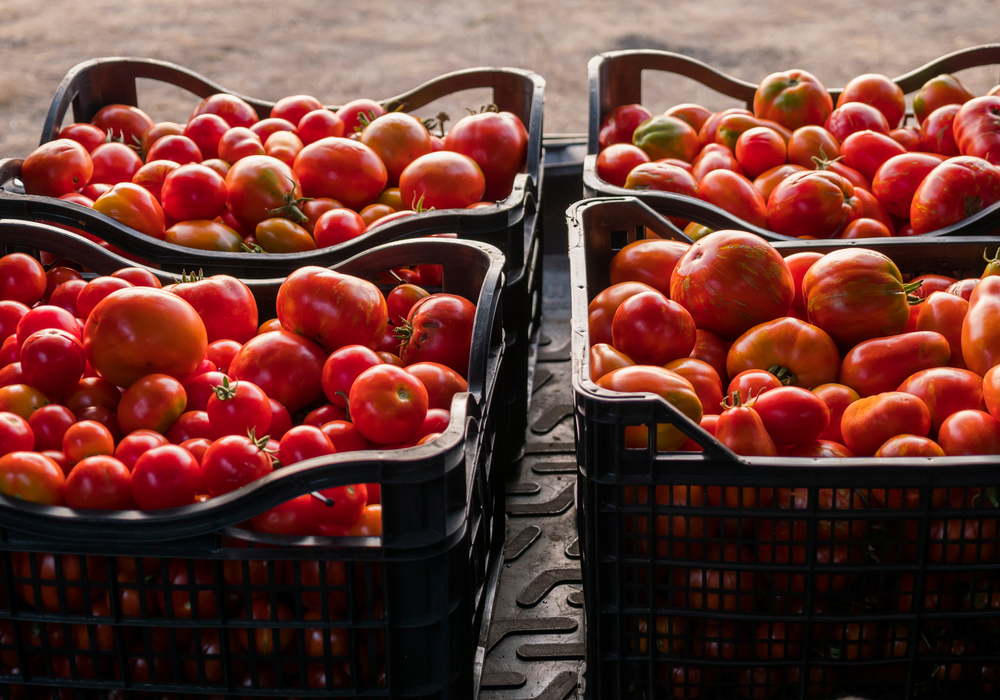Every year the harvest season reaches its height and creates a new demand for seasonal labour. As farmlands go through the seasons, work becomes more in demand.
Often in the countryside, some farms will grow wheat, barley, and oats. Other farms will focus on summer-berries and fruit-picking jobs. When this happens, farmers and growers will need help from a seasonal workforce.
Background: Seasonal Horticulture
When demand for seasonal work is at its peak, labour will often come from all over. This means farmers will accept paid help from residents in the UK and those abroad. This can be a nationwide appeal, but most commonly will attract workers from countries like Romania, Poland, Bulgaria and many other European locations.
Are Seasonal Jobs Worth It?
Farmers and growers will often recruit labour when there is a demand to help plant, harvest and pack crops. Seasonal work is an opportunity for workers to enjoy flexible scheduling and have access to paid work.
Competitive Rates of Pay
A major attraction for seasonal work is how much it pays. On farms, fruit-picking work can be in high demand and will reward its labour with pay, sometimes accommodation and the chance to travel to the UK. There is plenty of work on these farms, which produce crops every year.
Productive work
Customer demand, crop timing and weather cycles will determine the working schedule. Yet, seasonal work is productive and hands-on. Fruit picking, for example, will reward teams by spending time in the fresh air and harvesting the crop. The more you work, the greater the reward!
How much do seasonal workers get paid?
Commonly, a farm will offer seasonal work at a competitive rate of pay. Pay will vary depending on your role. For some farms, seasonal work is rewarded on productivity. This means that you might earn based on how much you pick and the quality of what you pick.
How much does seasonal work pay in the UK?
Since April 2020, minimum wage in the UK is at £8.72. Yet, with seasonal work, wages are calculated based on how well you perform in your role. In 2019, for example, workers who picked fruit were averaging pay rates of around £400/ week on many farms. If you’re working overtime, wages will be paid at a higher rate. Since April 2020, this hourly wage equals £10.90.
As a worker in the UK, you will be paid weekly, receive holiday pay, and UK taxes and National Insurance will be reduced from your wages.
Rates of pay (per country)
Seasonal work offers competitive rates of pay, meaning that workers can earn more or less depending on the country they’re working from.
| UK | Germany | France | Spain | |
| Avg. Rate / hour | €9.69 | €9.35 | €10.03 | €6.3 |
| Working hours / week | 37+ | 36-40 | 35 | 40 |
For further information about seasonal labour visit here.
Will I be taxed?
For the more common countries that experience high demand in seasonal jobs tax is deducted from wages.
What is included in seasonal work?
Rate of pay is only one issue seasonal workers should look out for. You should also consider if your temporary employers are offering accommodation, food and access to shopping. When planning seasonal work, it’s worth asking if the farm has the right amenities.
Many working farms that expect seasonal work will offer accommodation. What’s included will vary depending on the farm. Some will offer furnished living spaces at a small additional cost and will even include essential appliances per room.
When it comes to food and other shopping, many farms offer transport links and information to allow workers in-between shifts to access towns.
How Many Hours Do Seasonal Employees Get?
On your shift, you may be expected to hit a target in kilos to pick per hour. That means your work will likely be measured. But it also allows you to make more money, depending on how much you can harvest.
There is always an abundance of work to complete on a farm when its crop is in. Your fruit picking can earn a good pay, and most farms have an easy-to-pick technique that makes it simple to meet higher quantities per shift. Yet, quality in your picking will bring the most value to your work as customers expect fresh tasting produce.
In terms of a working shift, many farms require harvest work for 8-hours a day. Many pickers will then work 6-days a week. Overtime is often allowed too, which means you can earn more. This healthy demand for work is commonly what attracts labour to seasonal work.
Harvest intensities can change between countries. According to global research from the UNDP (United Nations Development Programme) the percent of employment in agriculture reads as follows:
| Country | Seasonal Workers (Out of Total Employment) |
| Spain | 4.1% |
| France | 2.9% |
| Germany | 1.3% |
| UK | 1.1% |
For further information about seasonal labour visit here.
Working with Hall Hunter
Across our three farms, we offer a range of seasonal fruit-picking jobs. In 2019, our workers averaged pay at £414 a week and enjoyed staying at our on-site facilities. With our convenient accommodation offer, we allow our workers access to a wealth of facilities, such as an on-site shop, gym, sports pitches and canteen. So, you can enjoy life outside of work, too. Included in our accommodation is everything needed to make your stay comfortable and convenient.
We help our workers, which means if you’re outside of the UK we can help with your application.
Interested in fruit-picking? Have a green thumb? Apply for work.


